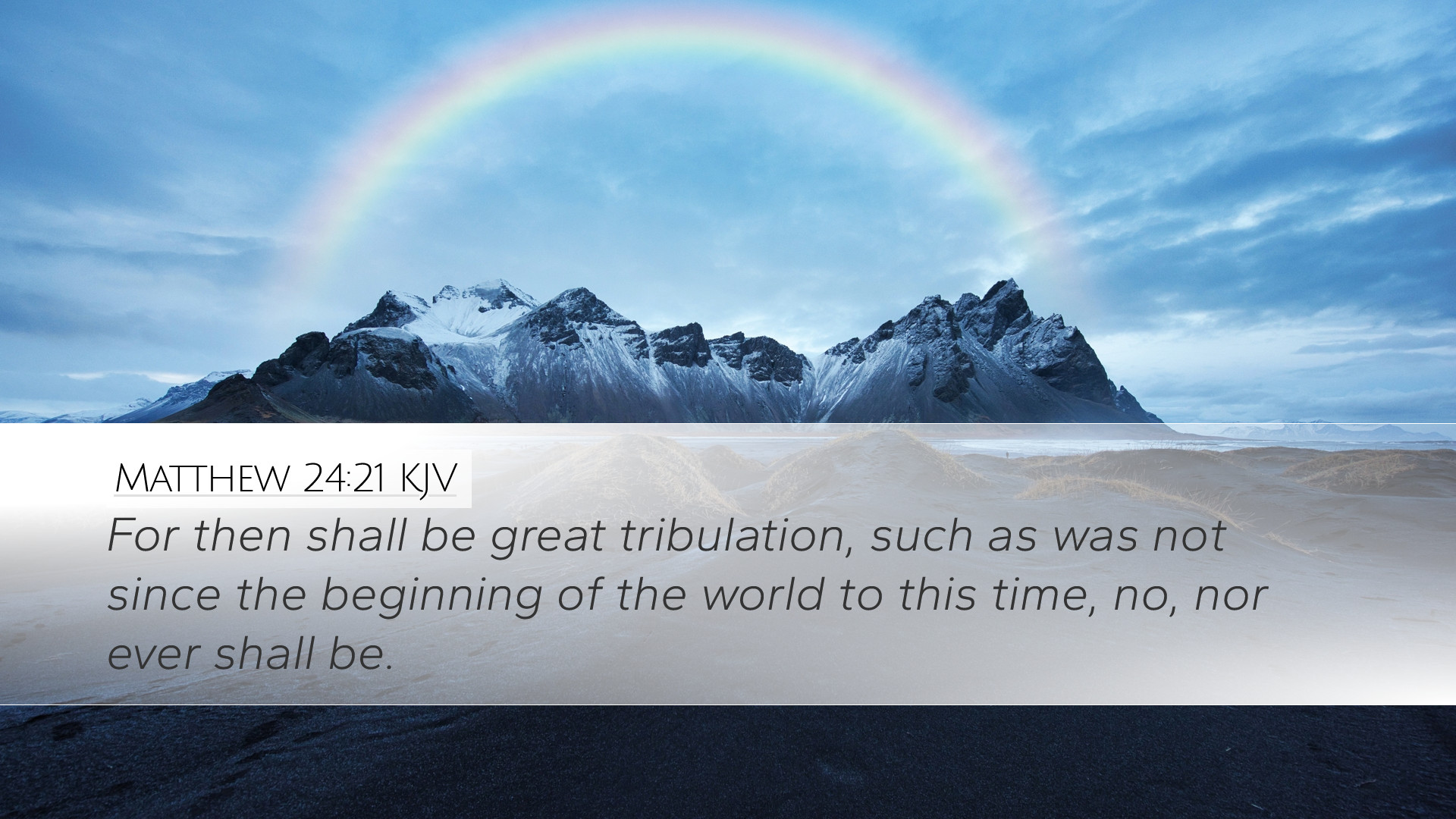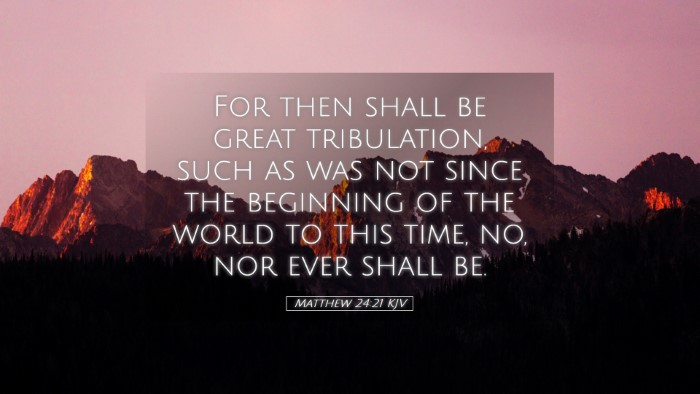Commentary on Matthew 24:21
Verse Overview: Matthew 24:21 states, "For then shall be great tribulation, such as was not since the beginning of the world to this time, no, nor ever shall be." This verse forms a part of Jesus’ discourse on the end times, highlighting the severity of the tribulations that will occur before His second coming.
Contextual Background
This passage is situated within the Olivet Discourse, where Jesus responds to His disciples' inquiries regarding the signs of His coming and the end of the age. Matthew 24 deals comprehensively with eschatological themes, providing both warning and hope.
Theological Significance
The emphasis on "great tribulation" draws attention to the unparalleled distress that Christians and the world will experience. It serves as a reminder of the fallen condition of the world and the need for perseverance in faith.
Insights from Commentaries
Matthew Henry
Henry interprets this tribulation as unprecedented and unique, arguing that it points to a future distress that surpasses any suffering in human history. He suggests that this could relate to both physical calamities and spiritual trials faced by believers. Henry emphasizes the need for faith and readiness amidst such tribulation, encouraging believers to cling to the promises of God during challenging times.
Albert Barnes
Barnes provides a detailed exploration of the 'great tribulation,' connecting it to both the plight of the early Christians and the eventual eschatological judgment. He underscores that this tribulation is meant to act as a purging and refining fire for the faithful, preparing them for eventual glory. Barnes warns against the dangers of complacency, urging believers to remain vigilant and prayerful, adjusting their lives in anticipation of Christ’s return.
Adam Clarke
Clarke focuses on the historical implications of this verse, suggesting that the tribulation could be seen in light of the destruction of Jerusalem. He posits that this prophecy fulfilled itself in a literal sense during the Jewish War, reinforcing the understanding of Jesus’ prophecy as both immediate and far-reaching. Clarke invites readers to recognize the layers of meaning in the text, advising that tribulations can lead to deeper faith and understanding of God's sovereign plan.
Application for Believers
This verse challenges believers to reflect on their spiritual preparedness. The prophecy of tribulation encourages a life of holiness, prayerfulness, and community support among believers. Such insight promotes a deeper understanding of God's providence in times of distress.
Practical Steps for Preparation
- Strengthening Faith: Believers should engage with Scripture, seeking to deepen their understanding and relationship with Christ.
- Community Engagement: Christians are encouraged to support one another, forming prayer groups to intercede for strength during trials.
- Active Service: Engaging in acts of service and evangelism can build resilience and a sense of purpose amidst uncertainty.
- Endurance Training: Spiritual disciplines such as fasting, prayer, and meditation can prepare individuals for potential trials.
Conclusion
Matthew 24:21 serves as a sobering reminder of the tribulations to come but is also a call to deeper faith and preparedness. Public domain commentaries reveal the richness of this verse, offering insights that challenge, encourage, and equip believers for the days ahead. In the spirit of unity and hope, let us embrace the call to faithfulness, knowing that through tribulation, we are refined and realigned with God’s eternal purpose.


